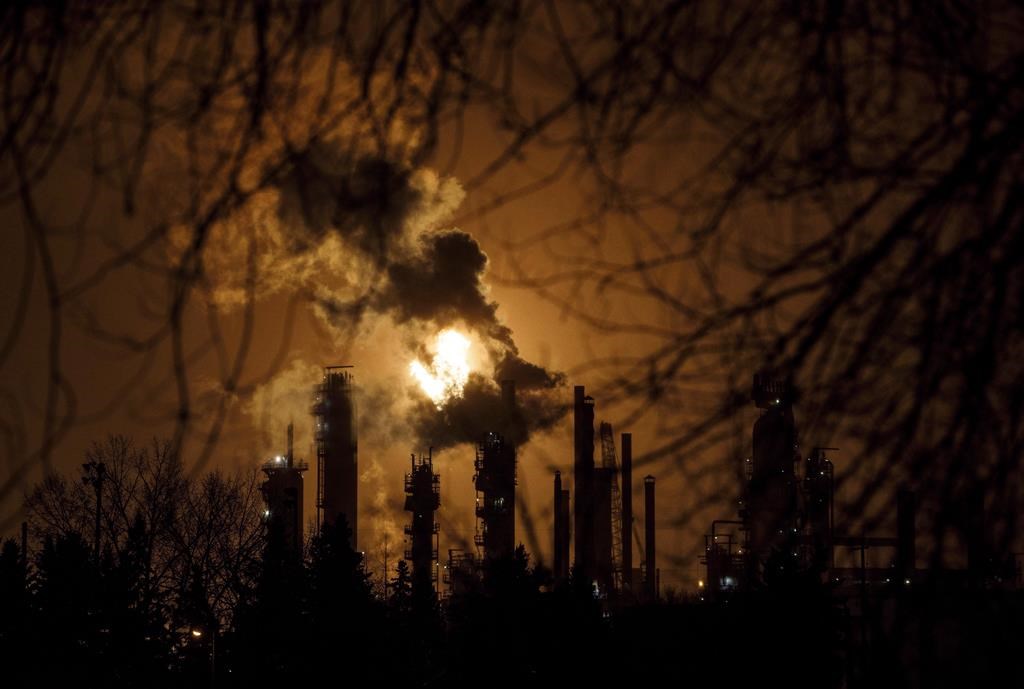COVID-19 has revealed again that Earth is a small planet, and we’re all in this pandemic together.

Yet, in judging our collective efforts to scrape by and prevent future tragedy, humanity would only scrape by with a passing grade.
We all need to up our game if we’re going to succeed at preventing and managing future pandemics, let alone slower-moving climate and ecological crises. Success requires embracing pre-emptive action and rejecting the flawed notion that over-preparing is a sign of weakness.
READ MORE: What about the next pandemic? Coronavirus offers lessons for the future
Coming into the COVID-19 crisis, a range of outcomes were possible. For true success, humanity should have prevented the novel coronavirus from ever having evolved to infect human hosts. A next-best level of success would have had us immediately containing and extinguishing the virus before it even became an epidemic and shut down economies. Moderate success would have been to prevent community spread in most nations.
Looking back on that range of successful outcomes, we’re somewhere near the bottom. We might still even be at risk of failure.
Some might say that grading our success is a moot point; any form of a successful outcome was possible because the crisis was inevitable.
That’s nonsense. Disease is inevitable, but human disaster is not. For COVID-19 and other zoonotic diseases — that is, those diseases that pass to humans from animals — greatly limiting the interaction between animal hosts and humans is key to preventing pathogens from evolving to attack us. The wildlife trade, active in Asia and elsewhere, brings people into close contact with a great diversity of species.
As I have described elsewhere, any points in the supply chain that thrust many highly stressed animals into close quarters — like wet markets — are breeding grounds for disease. If much of the world had stopped buying products derived from wild animals and shunned those who did, COVID-19 would likely never have come into existence.
Other failure points were equally preventable. Shutting down travel from the infected regions early while greatly boosting testing, tracing and quarantine procedures would have prevented the spread to many nations. So why did we wait?

Get daily National news
Also baffling is why many nations waited for community spread before enforcing physical-distancing measures. By then, the cat was out of the bag. Early physical distancing, alongside expanded testing, tracing and quarantine, likely could have prevented real community spread. And so on.

A key problem is that we’re not viewing our choices — even in retrospect — as failures. We overlook our lack of systemic planning and preparedness, despite the warnings of the SARS, MERS and H1N1 epidemics. We treat those outbreaks as if they were the worst nature had to throw at us.
With COVID-19, we note that strong measures were taken and we ignore that they could have been taken much earlier based on prior experience. Travel bans and lockdowns seemed like inconceivable overreactions before the threat was personally imminent and before many people had lost their lives. Now, these measures feel normal and obvious.
It’s great that we can transform our perceptions of what is possible and desirable. It’s our greatest failure that we routinely wait so long.
Why is collective pre-emptive action so hard? Because imminent risk is a great motivator, because we largely process risk with our reptilian brains (not our rational ones), because we want all our freedoms all the time and because it’s culturally normal to blame the messenger. “The sky is falling, the sky is falling!” crow the Twitter trolls.
READ MORE: By 2070, billions could be living in areas too hot for humans, U.S. study finds
We also routinely underestimate the power of the natural world.
Exponential growth is taught in junior high, and yet few of us think naturally in these terms. Maybe it’s unfounded optimism. In early March, Canada had few COVID-19 cases, but they were quadrupling weekly. Remember how many companies and organizations were fighting to continue conducting business as usual? Some people are still ignoring physical distancing as COVID-19 numbers climb ever higher, ignoring how their behaviour prolongs the social and economic disruption for all.
Looking beyond COVID-19, this collective failure to act pre-emptively makes us equally vulnerable to climate and ecological crises.
We fight to maintain the status quo, even when the science clearly points to an urgent need for action, given climate inertia, self-reinforcing feedback and ecological lock-ins. We wrongly judge calls for pre-emption as cowardly caution.
Over-preparing is the key to succeeding most times. Given how the most vulnerable bear the brunt of failure, it’s also the right thing to do.

How about we use this downtime to psych ourselves into a monumental effort to avoid future health, ecological and climate breakdowns?
Let’s recalibrate to view the now unlikely possibility of over-preparing as a welcome success. Perhaps the upheaval of COVID-19 can inspire us to take much-needed preventive action for the climate, the biosphere and humanity.
Kai Chan is a professor at the University of British Columbia’s Institute for Resources, Environment and Sustainability. He researches social-ecological systems and was a co-ordinating lead author of the UN’s 2019 biodiversity report, the IPBES Global Assessment.













Comments